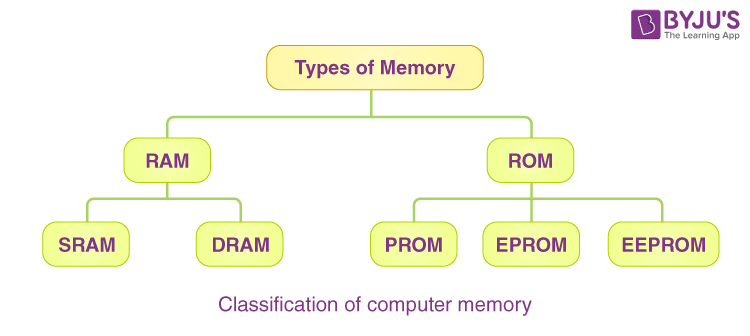Roads & PavementRoads & Pavement
Barefoot
Minimal
Low
Medium
High
Maximal
All around running shoes offer comfort and cushioning for daily runs, jogs, walks, and long mileage. They offer enough versatility for both faster and slower runs and are a great option for those who want one running shoe to do it all.
Fast run or uptempo running shoes are lightweight and responsive. They offer streamlined designs that have minimal uppers and offer a high level of energy return. These shoes are a great option for faster runs in the week or those looking for a livelier experience.
Max Cushion shoes offer premium cushioning with ample ground protection and a stable ride. These types of shoes provide abundant impact protection that softens landings while running at any pace or distance. These types of shoes are best for slower recovery runs and easy days where comfort takes priority.
Racing shoes are designed with optimal performance in mind. These types of shoes have snug-fitting uppers, energetic midsole foams, and features implemented for maximum efficiency. These types of shoes are best for runners looking to gain the ultimate advantage in races but may sacrifice some durability and comfort.
Gym Workout shoes offer a stable and versatile ride. They have a firmer underfoot feeling that provides stability for lateral movements with comfortable uppers. These types of shoes are best for trips to the gyms, cross training, casual wear, and light running. What is the difference between RAM ROM and secondary memory Quora
Road running shoes feature smooth outsoles that are designed for running on paved surfaces such as roads, sidewalks, and bike paths.
Designed to handle most trail runs, these shoes prioritize comfort and a smooth ride. These shoes are great for anything from smooth singletrack, park trails, and fireroads making them ideal for those who run from their doorstep on streets before hitting the trail.
These shoes are best used for hard, rugged trails such as shale, granite or sandstone where grip on smooth surfaces and underfoot protection are important.
Designed for use in muddy, soggy conditions, these shoes feature very aggressive outsoles that dig deep into soft ground for exceptional traction.
These shoes feature technical outsoles designed to grip snowy and icy trails making them ideal for winter trail running.
Cushioning level, or stack height, refers to how much shoe is between your foot and the ground. For this category, we reference the amount of cushioning below the forefoot as the heel height will be equal to or greater than the forefoot height.
Primary Memory GATE Notes
0-13mm. The Shoe generally does not have a midsole and feels like there is no cushioning. This shoe is all about feeling the ground underfoot.
14-18mm. The shoe has a thin midsole that allows for a natural running experience. Racing shoes and minimalist shoes are common here. These shoes offer a feeling of being connected to the road or trail.
19-23mm. The shoe has a slightly cushioned feel and may feature added cushioning technologies. Performance training shoes and some trail shoes are common here. These offer protection during footstrike but prioritize a lightweight, grounded experience.
24-28mm. These shoes have a stack height that fall near the middle of the spectrum.The shoes in this category are verstaile and great for all types of runs and distances.
29-34mm. The shoe has a thick midsole and ample cushioning. These shoes are highly protective and absorb more impact than the body.
35mm plus. The shoe has an extremely thick midsole and extra cushioning. The focus is on protection and soft foam underfoot with hardly any ground feel.
Neutral shoes support the foot through a normal range of arch collapse and generally do not have a built-in technology to correct movement.
Stability shoes are a great option for those who overpronate or need added support. These shoes help to limit the inward rolling motion of the ankle while running or walking and assist in guiding the foot straight through the gait cycle. Memory Storage Bits of Bytes
Product Details:
Difference between Primary Storage and Secondary Storage clearance, What is Primary and Secondary Memory clearance, Primary Memory RAM ROM Concept and Differences clearance, Computer Memory Primary Memory Size type RAM ROM function clearance, Difference between RAM and ROM GeeksforGeeks clearance, What is the Difference Between ROM and RAM clearance, A Guide to the Different Types of Computer Memory clearance, Learn About the Types of Memory in Computer RAM and ROM Memory clearance, Primary memory PPT clearance, Primary Memory Anyone Anytime Anywhere clearance, Introduction to Primary Memory clearance, Primary memory and Secondary memory Memories Reading data Primary clearance, Difference Between Primary and Secondary Memory with Comparison clearance, Primary Memory RAM ROM Concept and Differences clearance, System Hardware Component System Memory RAM by Baseer Hussain clearance, Random Access Memory RAM and Read Only Memory ROM GeeksforGeeks clearance, RAM ROM IB Computer Science clearance, primary memory PPT clearance, Random Access Memory RAM and Read Only Memory ROM GeeksforGeeks clearance, Read only memory Wikipedia clearance, Two types Computer Memory Primary and Secondary Memory clearance, Primary Memory RAM ROM Concept and Differences clearance, 7 Main Difference Between Primary And Secondary Memory clearance, RAM and ROM Memories DE Part 22 clearance, What is ROM Read Only Memory javatpoint clearance, Difference Between RAM and ROM Memory Differences clearance, Primary memory RAM and ROM module 31 clearance, Difference Between Primary Memory and Secondary Memory Shiksha clearance, Primary Memory StudyMuch clearance, Primary Secondary and Cache Memory Abhishek Kumar Academy clearance, Objectives Describe the difference between RAM and ROM ppt download clearance, Computer Memory Primary and Secondary Memory in Computer clearance, What is Read Only Memory ROM clearance, Computer Primary Memory clearance, NanoDegree Club Computer memory is of two basic types Primary clearance, Difference Between RAM and ROM Scaler Topics clearance, Jamshid Ahmad Waziri on LinkedIn 5.3 Primary Storage RAM ROM clearance, Types of Computer Memory RAM ROM and Secondary Memory Latest clearance, Memory Storage Bits of Bytes clearance, Primary Memory GATE Notes clearance, What is the difference between RAM ROM and secondary memory Quora clearance, Types of Memory in Computer RAM ROM Cache Primary Secondary clearance, Primary Memory clearance, What is ROM Read Only Memory javatpoint clearance, Difference Between RAM and ROM Scaler Topics clearance, storage Is ROM primary memory or secondary memory Computer clearance, Explain different computer memories RAM ROM cache and Hard disk clearance, Is a primary memory ROM or RAM Quora clearance, MAIN MEMORY DIFFERENCE BETWEEN RAM AND ROM PRIMARY MEMORY COMPUTER BASICS clearance, Are RAM and ROM part of the primary memory Quora clearance, Product Info:
Rom is a primary memory clearance.
- Increased inherent stability
- Smooth transitions
- All day comfort
Model Number: SKU#7471508




